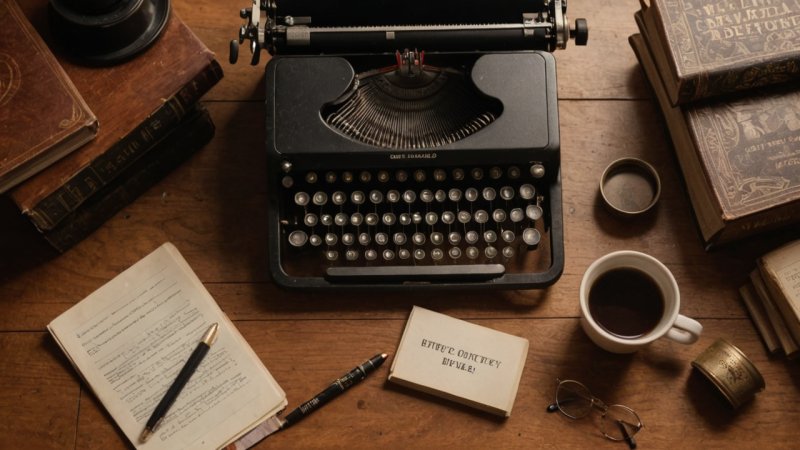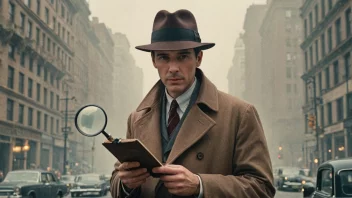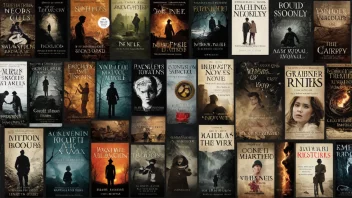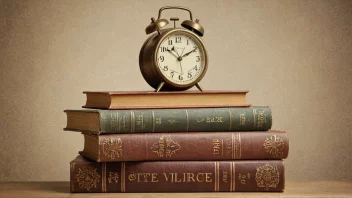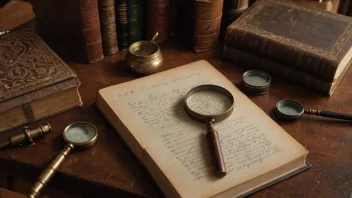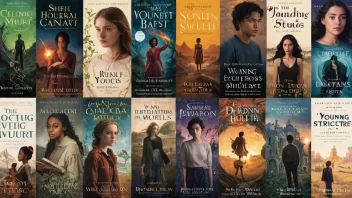1. Edgar Allan Poe: The Pioneer of Mystery
Edgar Allan Poe is often credited with creating the modern detective story. His short story, The Murders in the Rue Morgue, introduced C. Auguste Dupin, a character whose analytical prowess set the stage for future detectives. Poe's work established the formula for mystery short stories, emphasizing logical reasoning and a twist ending.
2. Arthur Conan Doyle: The Iconic Detective
Sir Arthur Conan Doyle took the mystery genre to new heights with his famous detective, Sherlock Holmes. Stories like A Scandal in Bohemia and The Adventure of the Speckled Band captivated readers with intricate plots and the brilliant deductive methods of Holmes, influencing countless authors and adaptations.
3. Agatha Christie: The Queen of Crime
Agatha Christie revolutionized the mystery short story with her unique style and memorable characters, such as Hercule Poirot and Miss Marple. Her stories, including The Case of the Missing Will, often featured an ensemble cast, red herrings, and a final reveal that kept readers guessing until the last moment.
4. Raymond Chandler: A New Perspective
Raymond Chandler introduced a gritty realism to the mystery genre with his hard-boiled detective stories. Works like The Simple Art of Murder and Farewell, My Lovely captured the essence of post-war America and showcased a darker side of human nature, setting the stage for future noir literature.
5. Patricia Highsmith: Psychological Depth
Patricia Highsmith brought psychological complexity to the mystery short story with her character-driven narratives. In works like Strangers on a Train, she explored the darker aspects of human psychology, blurring the lines between victim and perpetrator, which remains relevant in modern mystery literature.
6. Modern Twists: The Rise of Diverse Voices
In recent years, the mystery short story genre has expanded to include a wider range of voices and perspectives. Authors like Celeste Ng and Attica Locke have brought fresh narratives that challenge traditional tropes, reflecting diverse experiences and social issues.
7. The Influence of Technology
Technology has played a significant role in the evolution of mystery short stories. Modern authors often incorporate digital elements and social media into their plots, as seen in works like The Woman in the Window by A.J. Finn, where the protagonist's obsession with surveillance leads to unexpected twists.
8. The Short Story Format: A Breeding Ground for Innovation
The short story format allows authors to experiment with structure and style. Anthologies like New Voices in Crime Fiction showcase emerging talent and innovative storytelling techniques, pushing the boundaries of the genre and engaging readers in new ways.
9. The Importance of Setting
Setting plays a crucial role in mystery short stories, often acting as a character itself. From the foggy streets of London in Doyle's works to the sun-soaked beaches in contemporary mysteries, the setting influences the mood, plot, and the reader's engagement.
10. The Future of Mystery Short Stories
The future of mystery short stories looks promising with the rise of online platforms and literary magazines dedicated to the genre. This accessibility allows both established and emerging authors to share their work, ensuring that the mystery genre continues to evolve and captivate readers for years to come.
In conclusion, the evolution of the mystery short story reflects a tapestry of creativity, cultural shifts, and changing societal norms. From the classic tales of Poe and Doyle to the modern narratives that embrace diversity and technology, this genre remains a beloved and dynamic part of literature.
